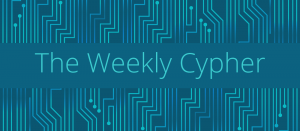The Weekly Cypher is specially curated to keep you up-to-date on the latest in cybersecurity, biometrics, and related news and innovations. Here are a few of the headlines you might have missed this week.
Bias in Facial Recognition Systems a Deal-Breaker | American Banker
A continuing racial and gender bias problem in facial recognition systems has many questioning their deployment in law enforcement, banking, and beyond. The problem is that the data sets used to train the systems aren’t diverse enough. This problem doesn’t only affect facial biometrics either. Iris recognition systems struggle as well, as can fingerprint readers depending on the circumstances involved. Experts agree the solution is to increase the databases used for testing and training these systems to incorporate more racially diverse groups. [Read More]
AI & Human Teams Needed to Optimize Facial Recognition | Eurekalert
A recent study by the Proceedings of the National Academy of Sciences found that facial recognition systems are most accurate when AI systems are paired with live human expertise. These pairings outperformed human-and-human teams, as well as AI alone. The study was part of a National Institute of Standards and Technology project to improve the use of facial recognition in forensics, and was the most comprehensive examination of such systems to date. [Read More]
Iris & Facial Recognition Gaining Ground on Fingerprints | ABI Research
New research shows that face and iris scanners are predicted to catch up to fingerprint recognition for mobile biometrics in the next few years. A demand for multi-modal biometrics, as well as increased adoption outside of established markets is driving this growth. Government deployments of biometric authentication, as well as integrations in the automotive industry, are expected to pick up significantly in 2018 and beyond. [Read More]
AI Algorithm Generates Fake Data for Facial Recognition | VentureBeat
Researchers at the University of Toronto have developed a new AI-based system that adds “light filter” to photos that disrupts facial recognition systems from accurately reading them. The algorithm is said to effectively defeat image-based search, emotion detection, and ethnicity identification systems, while reducing the accuracy of facial recognition to 0.5 percent. [Read More]





